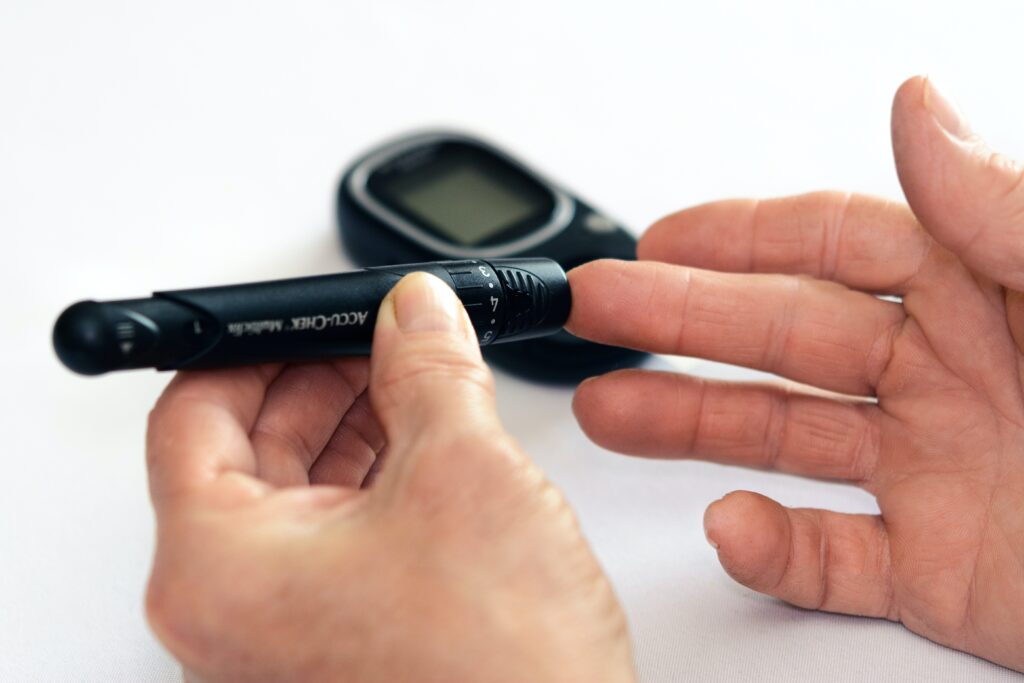introduction
Diabetes is a chronic disease that is spreading rapidly and affects millions of people worldwide and managing diabetes can be a lifelong commitment, but there are various natural ways to help control blood sugar levels and lead a healthier life. In this article, we will explore effective strategies and lifestyle modifications that can be implemented at home to control diabetes naturally. With these effective methods, you can control diabetes naturally at home.

Here are 15 ways to control diabetes naturally at home
- Understanding Diabetes
Diabetes is a metabolic condition in which our body’s blood sugar is high or beyond the normal range. It is because the pancreas does not produce insulin or the insulin produced is not used efficiently. There are two main types of diabetes: type 1 and type 2. Type 1 diabetes occurs when the pancreas produces little to no insulin, while type 2 diabetes occurs when the body becomes resistant to insulin or doesn’t produce enough of it.
- Importance of a Healthy Diet
A healthy diet is very important for managing diabetes. Diabetics should consume more whole foods such as whole grains, fruits and vegetables rich in fibre. They should avoid the consumption of sugary, processed foods and beverages with high sugar. Opt for foods with a low glycemic index, as they have a minimal impact on blood sugar levels.
- Regular Physical Activity
Engaging in regular physical activity helps control diabetes by improving insulin sensitivity and promoting weight management. Doing regular exercise for 20-30 minutes can increase insulin sensitivity and helps in weight management. Additionally, incorporate strength training exercises to build muscle and enhance overall health.
- Managing Stress Levels
Chronic stress can negatively impact blood sugar levels. Practice stress-reducing techniques such as meditation, deep breathing exercises, or engaging in hobbies you enjoy.
- Adequate Sleep and Rest
Getting sufficient sleep is essential for diabetes management. If you are not taking proper sleep then it could lead to insulin resistance and imbalanced sugar levels. You should take 7-9 hours of sleep to manage blood sugar levels.
- Monitoring Blood Sugar Levels
Regularly monitoring blood sugar levels is vital for understanding how your body responds to different foods and activities. Keep a log of your readings and work closely with your healthcare provider to adjust your treatment plan accordingly.
- Effective Weight Management
Diabetics should maintain a healthy weight because it is very important to manage diabetes. Losing excess weight can improve insulin sensitivity and promote better blood sugar control. Focus on achieving a balanced diet and engaging in regular physical activity to support weight loss goals.
- Incorporating Fiber-Rich Foods
Fibre-rich foods help regulate blood sugar levels and promote better digestion. Include sources of soluble and insoluble fibre in your diet, such as whole grains, legumes, fruits, and vegetables. These foods provide sustained energy and help you feel fuller for longer.
- The Power of Probiotics
Probiotics are beneficial bacteria that promote a healthy gut environment. They have been shown to improve insulin sensitivity and reduce inflammation, making them beneficial for individuals with diabetes. You should add probiotic foods to your diet to keep your gut healthy.
- Herbal Supplements and Remedies
Certain herbs and supplements have been traditionally used to support blood sugar control. You should consult with a diabetologist or any healthcare professional before the consumption of any herbal supplement, some popular options include cinnamon, fenugreek, bitter melon, and Gymnema Sylvestre.
12 tips to manage diabetes – https://drharshbardhan.com/12-tips-to-manage-your-diabetes/
- Hydration and Its Impact
Staying hydrated is essential for overall health and diabetes management. Water helps flush out toxins, supports kidney function, and maintains optimal blood sugar levels. Aim to drink at least 8 cups of water per day and limit sugary beverages that can cause blood sugar spikes.
- Avoiding Processed Foods and Sugary Drinks
Processed foods and sugary drinks are major culprits in raising blood sugar levels. These foods are often high in unhealthy fats, refined carbohydrates, and added sugars. Opt for whole, unprocessed foods whenever possible and choose water or unsweetened beverages instead.
- Mindful Eating and Portion Control
Practising mindful eating and portion control can prevent overeating and help regulate blood sugar levels. Pay attention to hunger and fullness cues, savour each bite, and choose smaller plates to encourage appropriate portion sizes.
- Limiting Alcohol Consumption
Alcohol can interfere with blood sugar control and may cause hypoglycemia if consumed in excess. If you choose to drink alcohol then do so in moderation and always have a snack or meal containing carbohydrates to balance its effects on blood sugar.
- Seeking Professional Guidance
Managing diabetes is a complex task, and it’s essential to work closely with healthcare professionals who specialize in diabetes care. Regularly visit your doctor, diabetes educator, or nutritionist for guidance, support, and adjustments to your treatment plan.
Know more about diabetes – https://www.cdc.gov/diabetes/managing/manage-blood-sugar.html